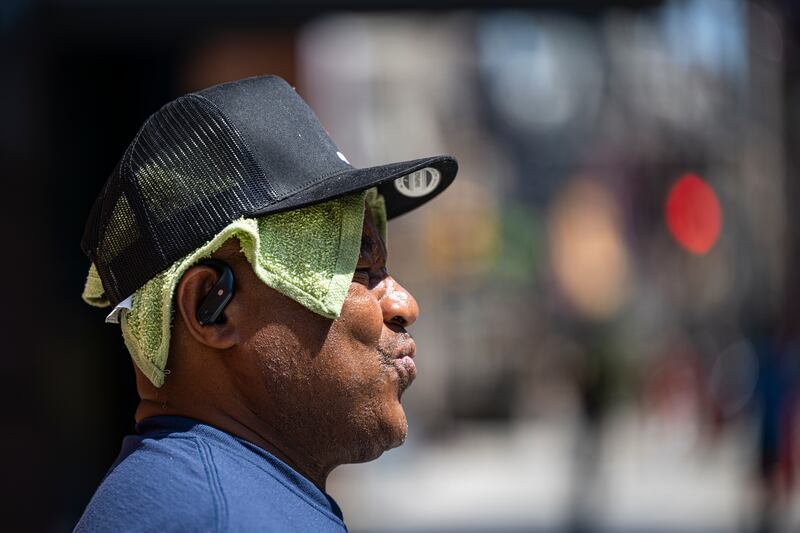The East Coast is sweltering under a heat dome, with New York City experiencing its highest temperature since 2012 and Central Park hitting 99 degrees on Tuesday, per NBC New York.
Other major East Coast cities hit record temperatures, like Baltimore, Boston, Philadelphia and Newark, which all exceeded triple-digit temperatures. Newark broke a heat record that had been set in 1966, per USA Today.
While record-high temperatures hit on Tuesday, the oppressive heat is expected to continue until the weekend. Lingering high pressure traps warm air near the surface and suppresses clouds and precipitation, driving these record-setting temperatures.
What states are being affected?
“Extreme heat warnings and/or heat advisories currently extend from the Lower Mississippi Valley and Midwest to much of the East Coast, affecting nearly 150 million people,” a report by the National Weather Service states.
The Ohio Valley is expected to experience the longest stretch of extreme heat, with high temperatures expected to last until Friday.
According to NBC News, “heat index values — a measure of what conditions ‘feel like’ when humidity and air temperatures are combined — are expected to be well into the triple digits throughout the region, with some places possibly reaching as high as 115 degrees."
The heat is not expected to cool much when the sun goes down, with overnight lows in New York barely dropping to the 70s. “The most significant cumulative heat impacts are anticipated across the Mid-Atlantic through Thursday,” says the National Weather Service.
Scattered thunderstorms are expected to hit the Southwest to the upper Great Lakes. New Mexico and west Texas may experience heavy rainfall, which could lead to flash floods in some areas.

Heat-related death and illnesses
A resident of St. Ann, Missouri, tragically died in her home on Monday after being without water or air conditioning for at least a few days, NBC News reported.
Meanwhile, in Paterson, New Jersey, two outdoor graduation ceremonies ended with more than 100 people needing treatment for heat-related health concerns, according to NBC News. Paterson Public Schools had anticipated the heat and provided on-site EMTs, cold bottled water, ice and wet paper towels for participants. Despite these precautions, the heat still affected participants.
Closures and increased electricity demand
The extreme temperatures caused public transportation disruptions across the Northeast, with train speeds being forced to slow down during peak heat hours for trains running between Washington, D.C., and New York, and between Philadelphia and Harrisburg, Pennsylvania, potentially leading to delays, per USA Today.
In addition to transportation delays, the National Park Service announced the closure of tourist attractions like the Washington Monument on June 24 and 25 due to the high temperatures.
Demand for electricity was through the roof as everyone tried to stay cool, causing extreme power outages across the East Coast, particularly in New York City, per CBS News.
What to expect in Utah
As cities across the country are experiencing these record-setting temperatures, here are temperatures Utahns can expect in the coming week.
Salt Lake City and surrounding areas are expected to reach the mid-90s, reaching a high of 98 degrees on Monday, per the Weather Channel forecast.
In St. George, residents can expect temperatures to hit the low 100s, reaching a high of 108 degrees on Monday. The high heat will stretch until the Fourth of July, with temperatures anticipated to drop to a high of 97 degrees, according to the Weather Channel forecast.
Heat safety tips
Here are a few tips to stay safe in extreme heat, according to the National Weather Service:
- Slow down. Reduce, eliminate or reschedule big outdoor activities until the coolest time of day.
- Those most vulnerable to the heat (infants, children, pregnant women and older adults) should stay in the coolest place possible.
- Drink plenty of water and nonalcoholic and decaffeinated fluids, even if you don’t feel thirsty.
- Eat light, cool, easy-to-digest foods.
- Take a cool bath or shower to cool down.
See more tips on how to stay cool on the National Weather Service website.

